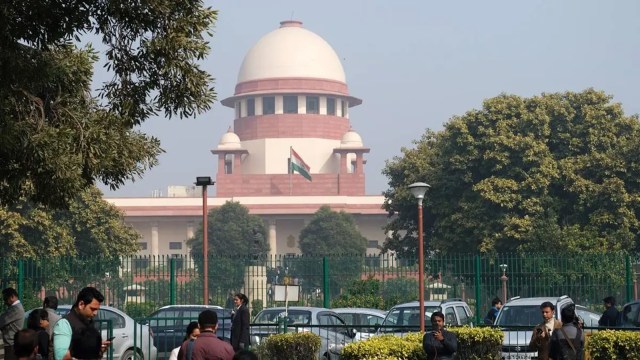complaints are based on asumptions that would require itto “embark on a roving inquiry”.

A three-judge Bench, presided by Chief Justice of India D Y Chandrachud, also said the petitioners had not taken recourse to other available remedies under the law before knocking on its door, and the court’s intervention at this stage would be both “premature and inappropriate”.
“At the present stage, absent a recourse to the remedies which are available under the law to pursue such grievances, it would both be premature and inappropriate for this court; premature because the intervention of this court under Article 32 of the Constitution must be preceded by the invocation of normal remedies under the law and contingent upon the failure of those remedies; and inappropriate because the intervention of this court at the present stage would postulate that the normal remedies which are available under the law would not be efficacious,” said the Bench, which included Justices J B Pardiwala and Manoj Misra.
“Individual grievances of this nature in regard to the presence or absence of quid pro quo would have to be pursued on the basis of the remedies available under the law. Likewise, where there is a refusal to investigate or a closure report has been filed, recourse can be taken to appropriate remedies under the law governing criminal procedure or as the case may be under Article 226 of the Constitution,” it said.
The Bench said the petitions “are founded on two assumptions — that there would be prima facie an element of quid pro quo where the date of purchase of the electoral bonds and the donation to a political party is in proximity to the award of a contract or change in policy; and that there is an involvement of certain officials of the investigative agencies, as a consequence of which an investigation by the normal process of the law would not be fair or independent”.
“We have highlighted the underlying premise of the submissions to indicate that these are assumptions at the present stage and require the court to embark upon a roving inquiry into the purchase of the electoral bonds, the donations which are made to political parties, and the arrangements in the nature of quid pro quo,” it said.
Story continues below this ad
The SC said it had entertained petitions “challenging the constitutional validity of the statutory provisions embodied in the electoral scheme (and) the consequent amendments which were made to diverse statutes, since the only remedy for challenging such action lies in the invocation of the power of judicial review”.
“Allegations involving criminal wrongdoing, on the other hand, are of a distinct nature where recourse to the jurisdiction of this court under Article 32 should not be taken as a matter of course, particularly in view of the remedies available in law,” it said.
The SC also declined the petitioners’ pleas to direct the authorities to recover the donations received by political parties through electoral bonds “on the basis that they are proceeds of crime”, and to reopen their Income Tax assessments. These “impinge upon the statutory functioning of authorities constituted under the law to make enquiries in that regard,” it said.
The Bench said it was of the “considered view that the constitution of an SIT, headed by a former judge of this court or otherwise, should not be ordered in the face of remedies which are available under the law governing the criminal procedure”.
Story continues below this ad
“Likewise… the reopening of assessments pertains to the specific statutory jurisdiction conferred upon assessing authorities under the Income Tax Act, 1961 and other statutory authorities,” it said, adding that the “issuance of a direction of that nature” at the present stage would amount to “a conclusion on facts which would be inappropriate to make.”
On February 15, a five-judge Constitution Bench of the court had struck down the electoral bonds scheme and changes made in the Representation of the People Act, 1951, Companies Act and the Income Tax Act, to implement the scheme. It had said that “information about funding to a political party is essential for a voter to exercise their freedom to vote in an effective manner”.









